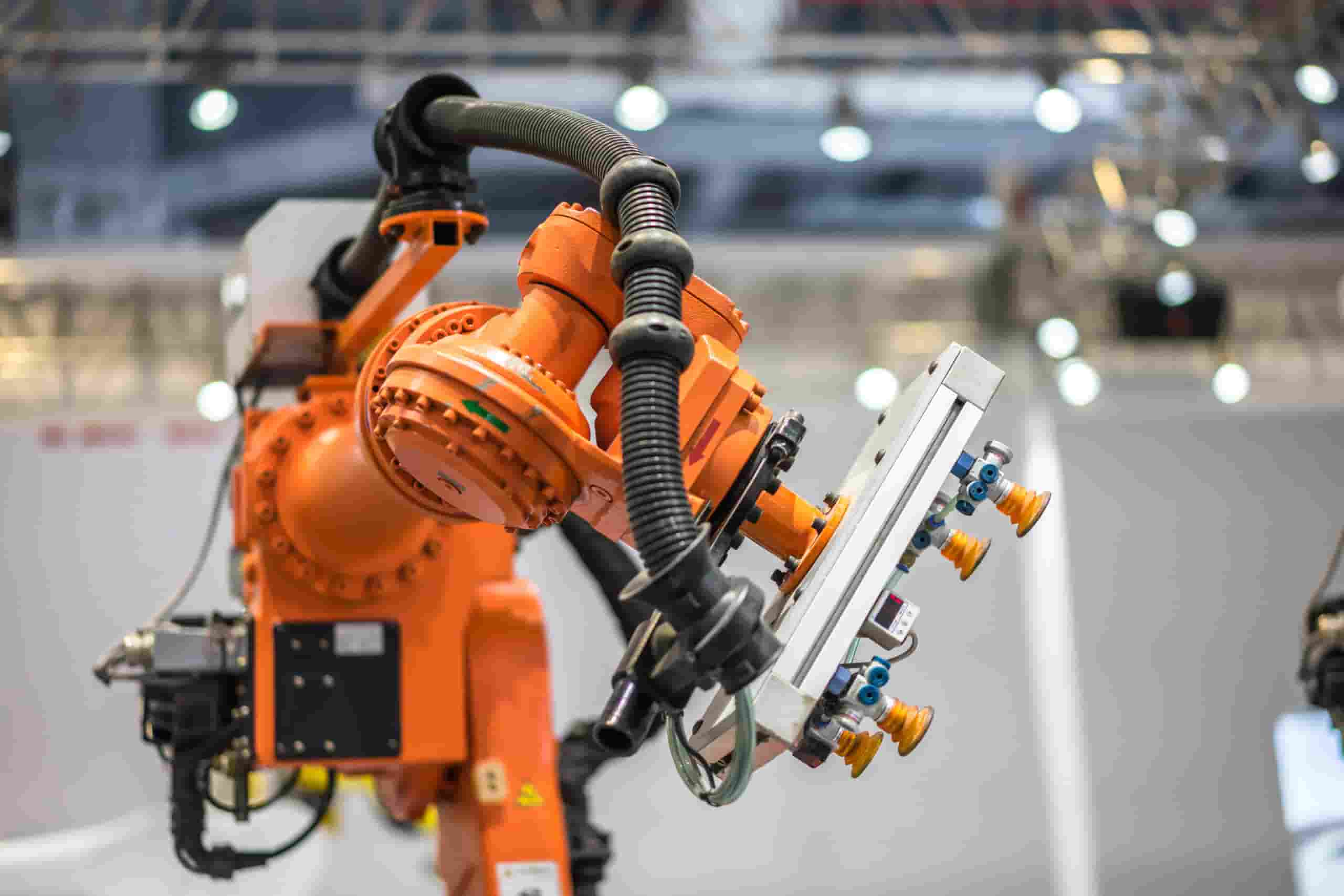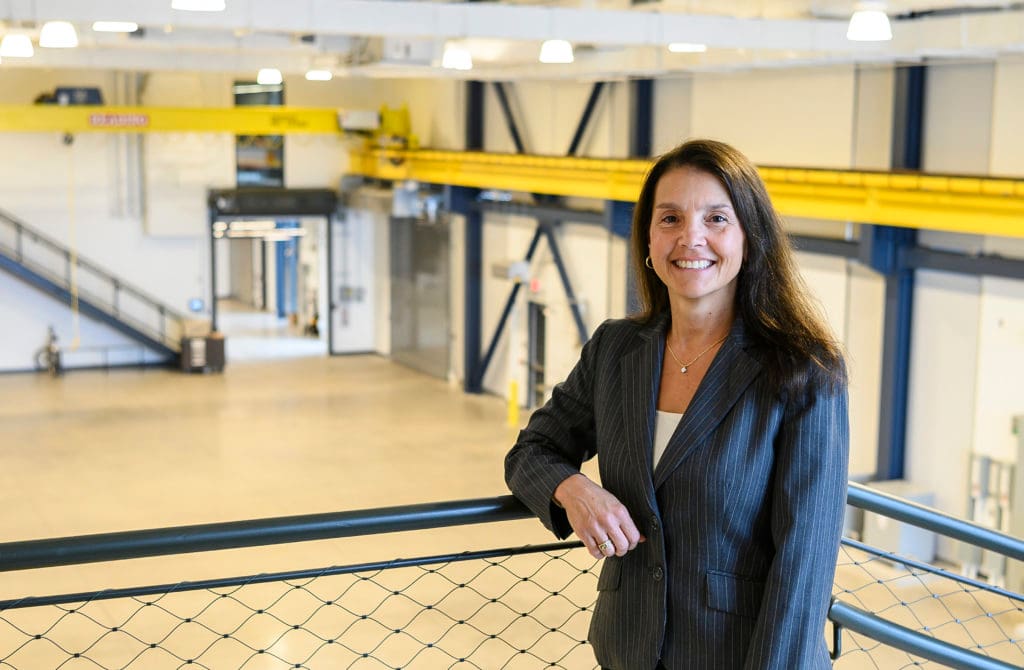
This month we invited Dr. Sandra DeVincent Wolf, Executive Director, Manufacturing Futures Institute and Executive Director, NextManufacturing Center & AI Enabled Additive Manufacturing Program at member organization Carnegie Mellon University (CMU). MFI is co-located in Mill 19 (Pittsburgh, PA) with the ARM Institute and we often jointly host events, so we want to share more insight on the important work being done with our partner.
1. Tell us a little about the Manufacturing Futures Institute (MFI) – the purpose and goals of the organization.
Carnegie Mellon University’s global leadership in the research and development of advanced robotics and automation, artificial intelligence, additive manufacturing, and materials science is rapidly transforming manufacturing and catalyzing economic development in Pittsburgh and beyond. The Manufacturing Futures Institute (MFI) combines cyberinformation technologies, manufacturing technologies and social sciences to create a highly collaborative advanced manufacturing research ecosystem that drives the digital transformation of manufacturing, accelerates the translation of associated research discoveries toward commercialization, and advances the methodologies and technologies to enhance the workforce. MFI aims to converge mindshare from interdisciplinary efforts across CMU to spur and foster leading innovations in advanced manufacturing.
MFI manages the 58,000 square foot advanced manufacturing facility at Mill 19 in Pittsburgh that is co-located with the ARM Institute and Catalyst Connection and seeds research projects across the spectrum of advanced manufacturing, including investing in additive manufacturing projects within the NextManufacturing Center.
2. Tell us about the Advanced Manufacturing/Additive Lab in Mill 19. What are you able to demonstrate?
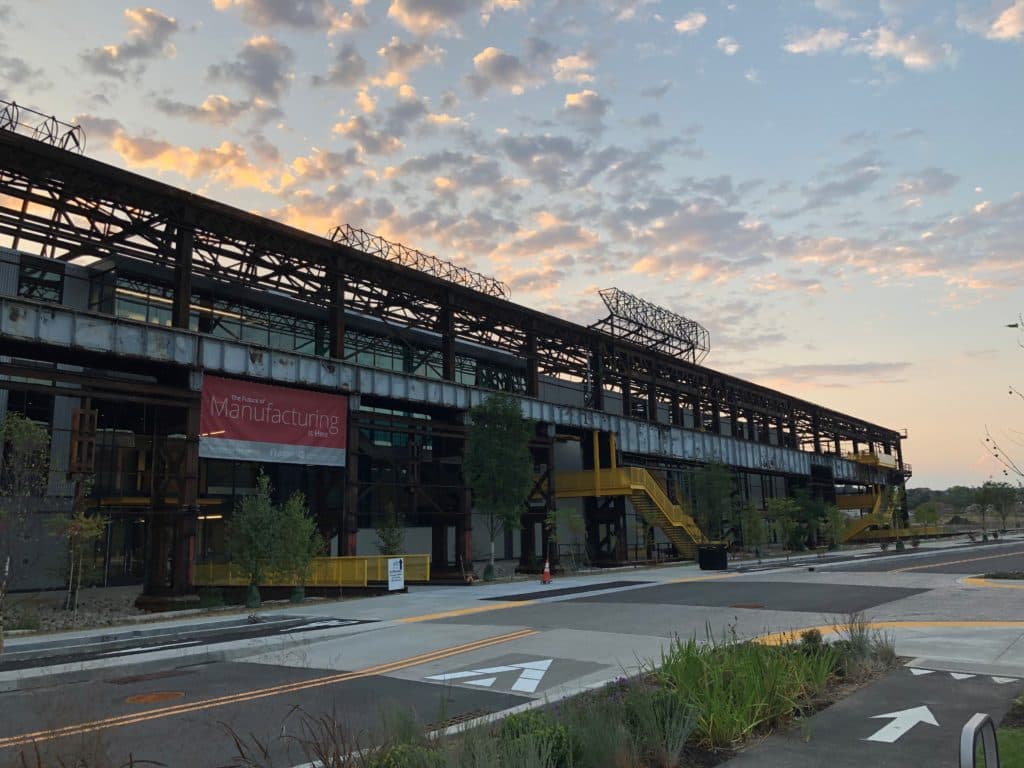
The facility at Mill 19 includes 6750 sq ft of high bay space, 13,300 sq ft of flexible low bay space available for future factory technologies including AI/ML, automation, additive manufacturing, robotics, IIoT, cybersecurity, a 2300 sq ft additive manufacturing facility and a machine shop to support research and operations. Equipment supporting additive manufacturing research and development includes:
- TRUMPF TruPrint 3000 Laser Powder Bed System
- TRUMPF TruLaser Cell 3000 Laser Metal Deposition System powered by a TruDisk 6001 (6kW solid state laser)
- ExOne M-Flex Binder Jet System
- Lincoln Electric ScultPrint RND Wire-Arc Additive Manufacturing System
- GF Machining Solutions AC Progress VP3 Wire EDM Machine
- High temperature, inert atmosphere furnaces
- Shot peens
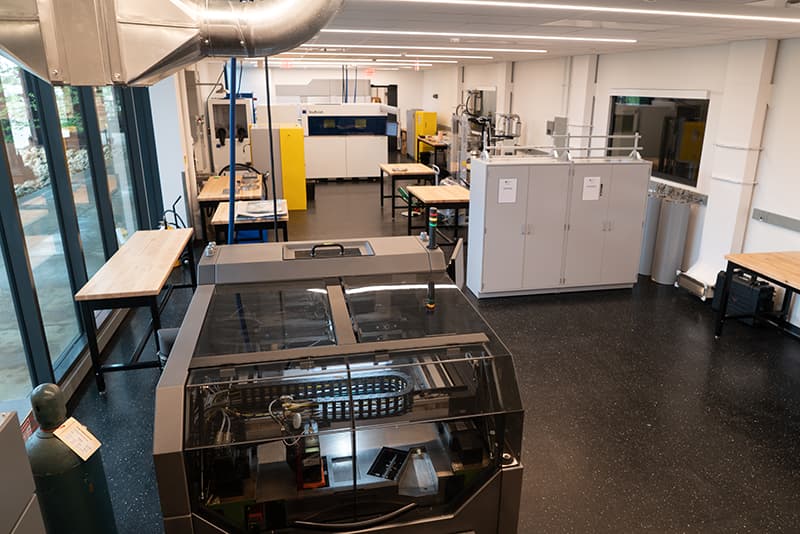
With these capabilities, and additional capabilities on the CMU campus, we are able to develop new materials for additive manufacturing from metals to ceramics to construction materials and optimize the processes for a number of additive manufacturing technologies from laser powder bed fusion and binder jetting to directed energy deposition on both small and large scales. With our extensive experience in the application of AI techniques to all aspects of additive manufacturing, we are working to demonstrate methods that support qualification of additive manufacturing materials and processes for various industry and government applications.
3. What role do robotics play in additive manufacturing?
The application of robotics can contribute significantly to the advancement and adoption of additive manufacturing. This includes numerous robotics technology areas such as sensing, monitoring and path planning and as well automation. The incorporation of advanced sensors and path planning, for example, can enable real time monitoring and inspection of the additive manufacturing process as a part is built. The use of automation and robotic arms can minimize the time and staffing needed to transition from one step to another in the additive manufacturing process (from material handling and loading to removal of completed builds, post processing and inspection).
4. The ARM Institute and MFI partner each year to invite students to learn more about advanced manufacturing at several events, notably Manufacturing Day in October. Why should young people be interested in manufacturing careers and what can MFI and CMU do to help them learn more?

Manufacturing is not only critical to economic growth and national security, but also essential to maintaining our quality of life and improving it. It is also a very exciting area that requires talented individuals from all fields. There are job opportunities in manufacturing in all sectors from automotive and aerospace to energy and health care that include specific positions at all levels from machine operators and technicians to engineers to managers. And, while manufacturing requires skills in engineering and computer science, it also requires skills in operations, communications, accounting, law and much more!
5. How valuable is having the ARM Institute, MFI, and local MEP Catalyst Connection in the same facility in Mill 19?
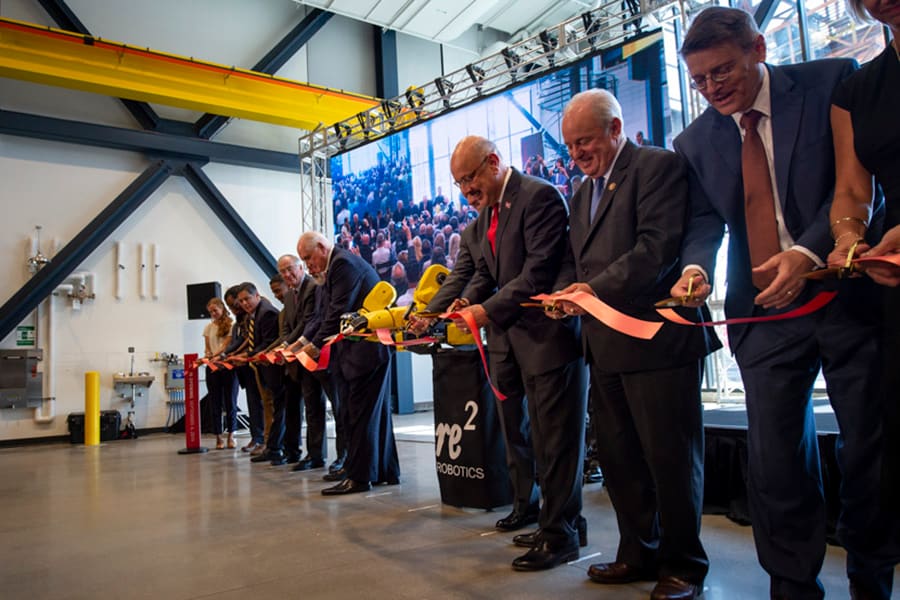 CMU MFI’s colocation with the ARM Institute and Catalyst Connection in Mill 19 strengthens the relationships between our organizations and increases opportunities for collaboration in our shared purpose of strengthening the manufacturing ecosystem. CMU’s MFI works specifically in advanced manufacturing research and education, the ARM Institute brings the ability to partner with their members to support research and the transition of technology, and Catalyst Connection supports the small and medium manufacturing enterprises in the region with consulting and manufacturing workforce training. Together we can support everything from basic research to deployment and training. You can learn more about MFI at https://engineering.cmu.edu/mfi/index.html
CMU MFI’s colocation with the ARM Institute and Catalyst Connection in Mill 19 strengthens the relationships between our organizations and increases opportunities for collaboration in our shared purpose of strengthening the manufacturing ecosystem. CMU’s MFI works specifically in advanced manufacturing research and education, the ARM Institute brings the ability to partner with their members to support research and the transition of technology, and Catalyst Connection supports the small and medium manufacturing enterprises in the region with consulting and manufacturing workforce training. Together we can support everything from basic research to deployment and training. You can learn more about MFI at https://engineering.cmu.edu/mfi/index.html
About the ARM Institute
The Advanced Robotics for Manufacturing (ARM) Institute is a Manufacturing Innovation Institute (MII) funded by the Office of the Secretary of Defense under Agreement Number W911NF-17-3-0004 and is part of the Manufacturing USA® network. The ARM Institute leverages a unique, robust, and diverse ecosystem of 300+ consortium members and partners across industry, academia, and government to make robotics, autonomy, and artificial intelligence more accessible to U.S. manufacturers large and small, train and empower the manufacturing workforce, strengthen our economy and global competitiveness, and elevate national security and resilience. Based in Pittsburgh, PA since 2017, the ARM Institute is leading the way to a future where people & robots work together to respond to our nation’s greatest challenges and to produce the world’s most desired products. For more information, visit www.arminstitute.org and follow the ARM Institute on LinkedIn and Twitter.
